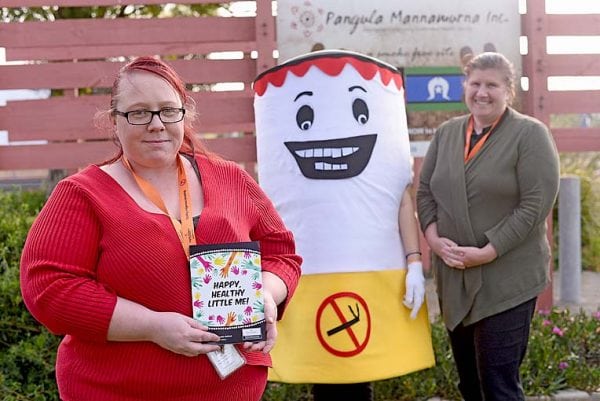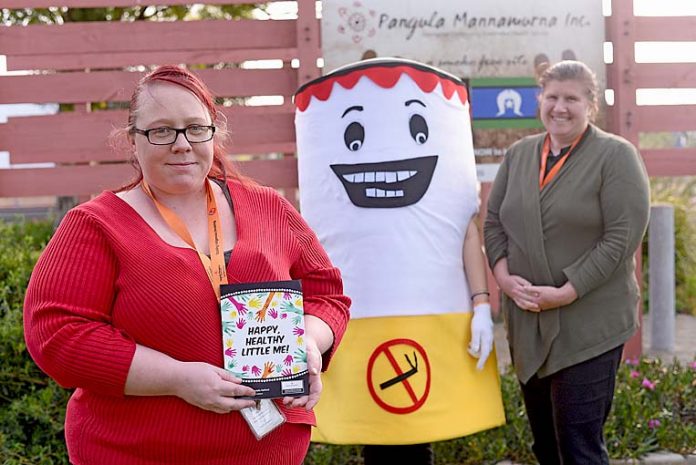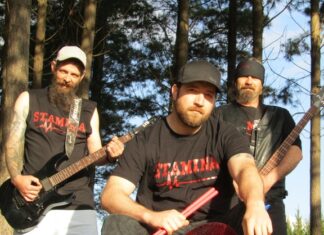
WHAT may have begun as a small idea for local resident Danielle Ashford soon turned into something which could be the answer to stopping the indigenous population’s number one cause of premature death.
Killing one in five indigenous people every year, smoking is currently a contributing cause to the 20 year gap between the life expectancy of indigenous and non indigenous people.
However, with thanks to Pangula Mannamurna coordinator of tackling indigenous smoking, these statistics may eventually be a thing of the past.
Launching her book Happy Little Healthy Me last week, Ms Ashford said she wanted to create something that would make parents change their smoking habits and create a healthier environment for their children.
“Smoking kills more people than any other preventable cause, including ice and alcohol, yet it is legal and accessible,” she said.
“Awareness is the main thing to help to reduce these numbers, we at Pangula focus on getting knowledge out there and trying to change that social norm.
“With kids we are looking at prevention and early intervention because the average age that children have a puff of a cigarette is currently nine.”
With indigenous people more pre-disposed to a number of health issues, Ms Ashford said it was important they are aware of just how harmful smoking is to their bodies.
“Back in our day it was pretty natural for kids to light their parents’ cigarettes, there were no smoking laws and it was natural to smoke in front of your kids,” she said.
“But for indigenous communities it has a massive impact on their health, adding to lower birth weight babies, SIDS, ear infection, heart disease and diabetes.
“Sadly I don’t think people fully understand that until they see the effects first-hand.”
Hoping to create an interactive way for children to learn about the effects of smoking, Ms Ashford came up with the idea of the book.
“I was just thinking well there are other teams around the country that are using songs and videos so for me I thought a book was something fun and catchy,” she said.
“Initially I thought it would be something we could chuck out in the services and see how it goes, but it’s just blown out into a new venture.”
With support from staff at Pangula Mannamurna, Ms Ashford said they have received great feedback from parents and other members of the community.
“We did a trial at Pangula’s Nunga playgroup and everyone really loved it,” she said.
“Having the elders’ support was also really important because these are people that know the history and culture and are so influential in the community.”
The book is being used by three teams tackling indigenous smoking across Australia with Ms Ashford planning to provide them to further communities across the country.
“Some communities don’t have the money to have these resources so we are really fortunate to have received funding to create them,” she said.
“Given that our population has really unique health needs, it is essential there is an appropriate service for them instead of having one size fits all.”
However, she said she understands that it is not an easy issue to tackle.
“We know it’s a long slog, there has been a decrease in smoking rates but it is hard work – not only for the indigenous population, but anybody that is trying to quit smoking,” she said.
“We welcome those struggling to quit to come in and see us, we are not threatening, we aren’t going to say you must quit now, it is a journey and if we are here for them all the way along, the chance of them staying off of it is a lot higher.”








